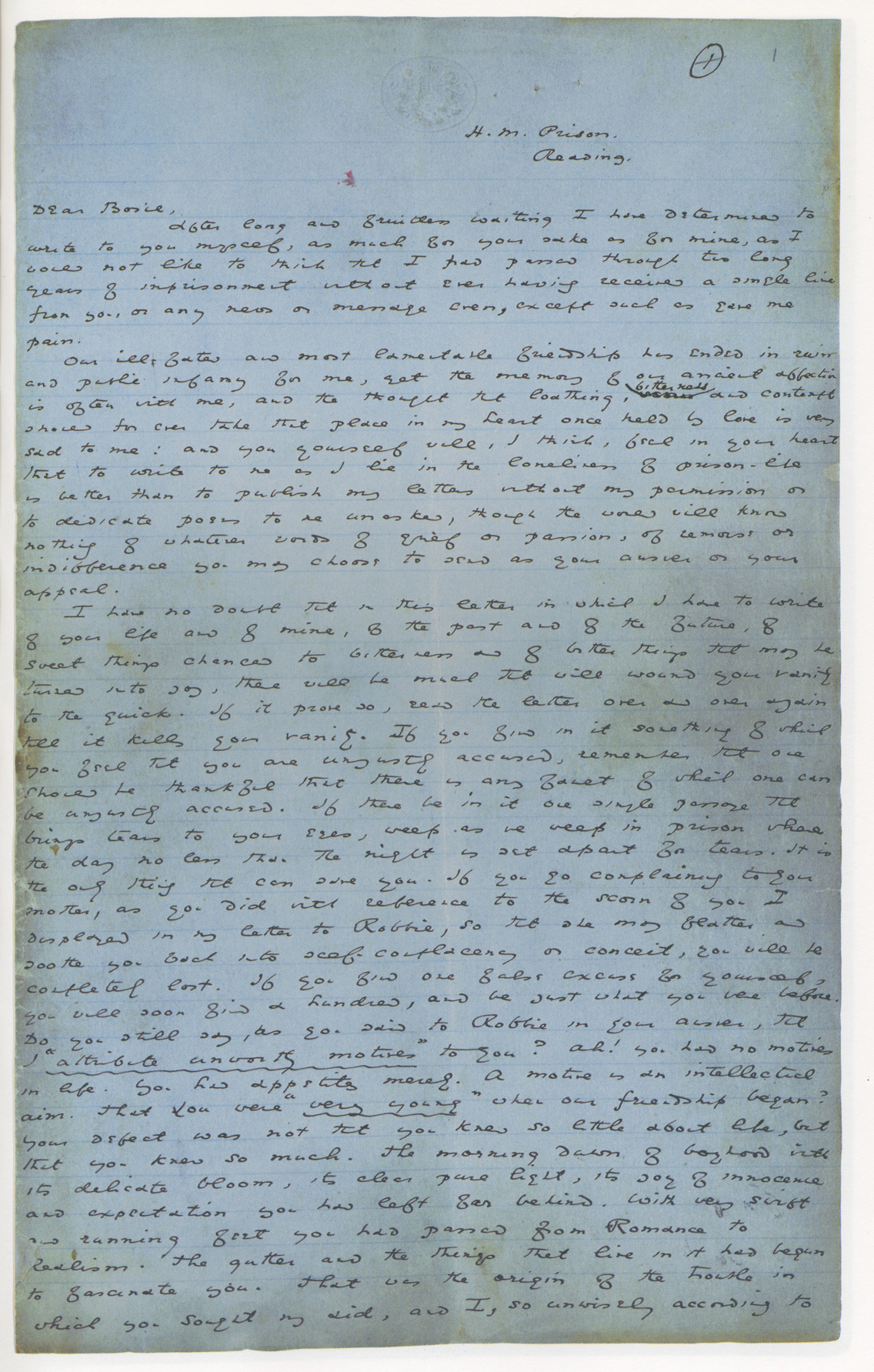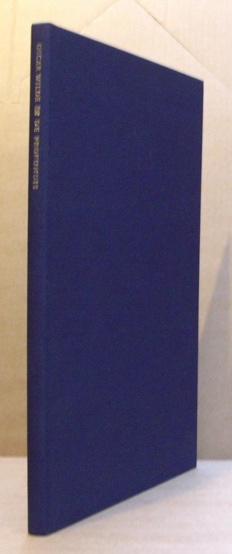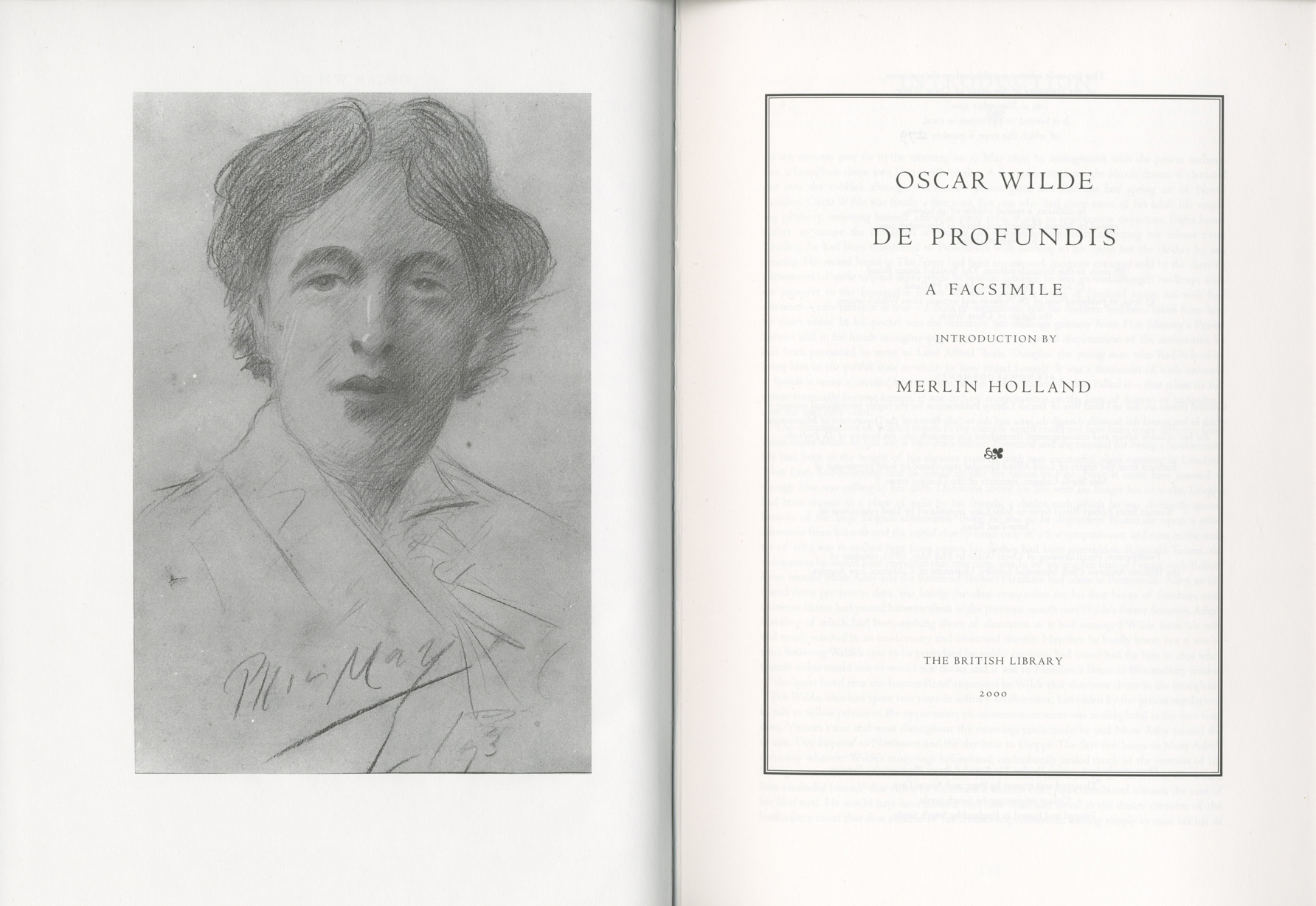Oscar Wilde
Oscar Wilde
Oscar Wilde’s De Profundis Numbered Limited Edition - 2000
An extraordinary limited edition facsimile of the original manuscript of Oscar Wilde’s De Profundis—a long, harrowing letter written to his lover, Lord Alfred Douglas, whose dysfunctional relationship with his father Wilde blamed for his trial and imprisonment from 1895-97. Hand-numbered 279 of an edition of 495 published on the centenary of the death of Oscar Wilde by his grandson, Merlin Holland.
“De Profundis” is Latin for “from the depths”; it comes from the first line of Psalm 130 of the penitential Psalms: Out of the depths have I cried unto thee, O Lord. The writer E. V. Lucas (1868 – 1938) claimed to have suggested the title; Wilde had suggested “Epistola: In Carcere et Vinculis,” meaning Letter: In Prison and in Chains.
During Wilde’s incarceration in Reading Gaol, warden Major James Nelson allowed Wilde greater access to books and paper than he had under previous wardens; Wilde would later call Nelson “the most Christlike man I ever met.” Wilde could not bring himself to write a play under these conditions; instead he concentrated on the more typical prison genre of the letter, and worked on it between December 1896 and March 1897.
As Wilde’s biographer Richard Ellmann remarked, the “most important thing about De Profundis is that it is a love letter;” despite its occasional arrogance and understandable lapses in structure, “one of the greatest, and the longest, ever written.” It could be seen as a dramatic monologue from Wilde to Douglas—a long, public address in which Douglas’s responses are assumed.
As an autobiographical attempt to understand the nature of his own life and work, De Profundis also reflects brilliantly on art, love, forgiveness, the significance of Christ, and Wilde’s own character and failings. Some times it mimics the humility of Christ; at others it returns to an older arrogance:
“I was a man who stood in symbolic relations to the art and culture of my age. I had realised this for myself at the very dawn of my manhood, and had forced my age to realise it afterwards […]”
Throughout, we see Wilde’s gift for a pithy, insightful statement, but sobered by suffering:
“Most people live for love and admiration. But it is by love and admiration that we should live.”
Perhaps unsurprisingly, the text is often savagely critical of Alfred Douglas, and accordingly, Wilde’s executor Robert Ross and others feared being sued for libel if they published it in its entirety. The edition published in 1905 removed all reference to Douglas. In 1909, Ross gave this manuscript to the British Library (then the British Museum) on the condition that it was not made public for fifty years. In 1913, however, it was read in from as part of a libel case Douglas had brought against the writer Arthur Ransome, who had just published Oscar Wilde: a Critical Study.
After Douglas’s death Wilde’s son Vyvyan Holland (1886-1967) published the full text of De Profundis (1949) from a transcript copy, but when Rupert Hart-Davis compared this version with the British Museum/British Library manuscript, he spotted inaccuracies and published a full version in 1962.
[Portions of text © British Library Board as available under a Creative Commons Attribution License.]



